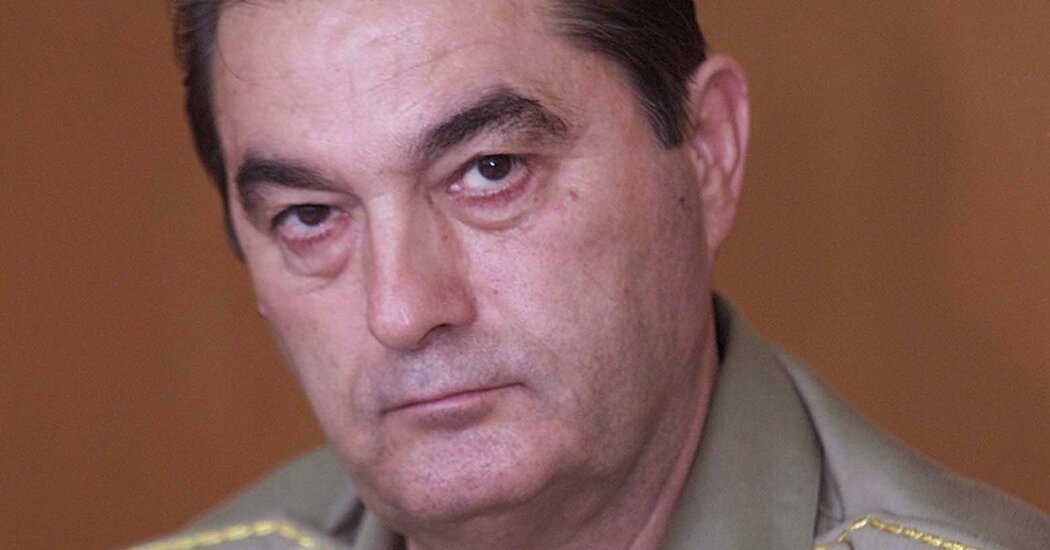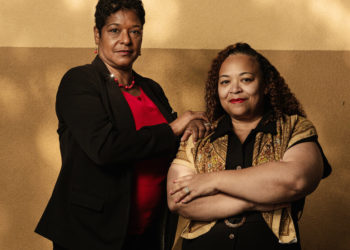Gen. Nebojsa Pavkovic, a former Yugoslav Army commander found guilty by an international tribunal of war crimes during the war in Kosovo in the late 1990s, died on Monday in Belgrade, the capital of Serbia. He was 79.
His death was reported by Serbian news media.
General Pavkovic was released last month from a prison in Finland, where he had been serving a 22-year sentence. The Serbian government had requested his release because his health was steeply declining.
He was convicted by the International Criminal Tribunal for the Former Yugoslavia in The Hague in 2009 on charges of murder, forced expulsions and persecution against the ethnic Albanian population of Kosovo, a breakaway province of the former Republic of Yugoslavia.
General Pavkovic — a close ally of the Serbian strongman Slobodan Milosevic, who was president of Serbia and then Yugoslavia over the course of 13 years — fought Kosovo guerrillas in 1998 but soon turned his troops loose in a terror campaign against the civilian population, which was 90 percent Albanian. Nearly 10,000 people were killed, and an estimated 800,000 Albanians fled the province.
The war ended after 78 days of NATO bombing of Serbian targets in 1999, when Mr. Milosevic agreed to withdraw his forces.
The general and four other senior political, military and police commanders were found guilty in December 2009 and handed long sentences.
Mr. Milosevic died in 2006 in the Netherlands during his own war-crimes trial.
Mr. Milosevic instigated three wars in the 1990s, in Croatia, Bosnia and Kosovo. They were the bloodiest conflicts in Europe since World War II, leaving more than 250,000 people dead. The phrase “ethnic cleansing” became part of the international vocabulary of atrocity to describe the Serbian nationalist policy of driving groups from parts of the formerly multiethnic nation of Yugoslavia.
When General Pavkovic, a native of Serbia, was returned to Belgrade last month, he was welcomed by some as a national hero.
“He dedicated his life to serving the country and the army,” President Aleksandar Vucic of Serbia said on Monday. “His memory will be cherished by those who shared hard and proud days with him.”
The criminal court painted a different picture. To drive out the Albanian population and ensure Serbian control of Kosovo, the court charged, General Pavkovic and other military leaders had purposely created a climate of terror through “systematic beatings, harassment, sexual assaults, unlawful arrests, killings, shelling and looting carried out across the province.”
Nebojsa Pavkovic was born on April 10, 1946, in Senjski Rudnik, a village in central Serbia. He began his military career in 1970 with the Yugoslav National Army and was assigned to the Pristina Corps in Pristina, the capital of Kosovo, in 1994.
He went on to hold several staff positions before taking command in 1998. That same year, Mr. Milosevic named him commander of the Third Army, based in southern Serbia, which led the fighting in the Kosovo.
At the end of hostilities, in February 2000, Mr. Milosevic appointed General Pavkovic chief of staff, the top military commander of the Armed Forces of Yugoslavia.
Later that year, a popular uprising in Serbia forced Mr. Milosevic from power. General Pavkovic refused to order troops from their barracks to defend the president after concluding, according to The New York Times, that soldiers would refuse orders to fire on the huge civilian crowds in Belgrade.
Mr. Milosevic’s successor as president, Vojislav Kostunica, forced General Pavkovic to retire in 2002. Information about survivors was not immediately available.
The general was indicted by the war crimes prosecutor in The Hague in September 2003 for crimes against humanity and violating the laws of war, but he initially defied the court. He ran for Parliament that December amid a resurgence of Serb nationalism, as did Mr. Milosevic, who was then on trial and ineligible to take a seat.
With Serbia seeking to join the European Union and under international pressure to turn over accused war criminals, General Pavkovic was surrendered to the tribunal in 2005. He denied the charges against him.
He was found guilty on Feb. 26, 2009.
Trip Gabriel is a Times reporter on the Obituaries desk.
The post Nebojsa Pavkovic, Yugoslav General Convicted of War Crimes, Dies at 79 appeared first on New York Times.




